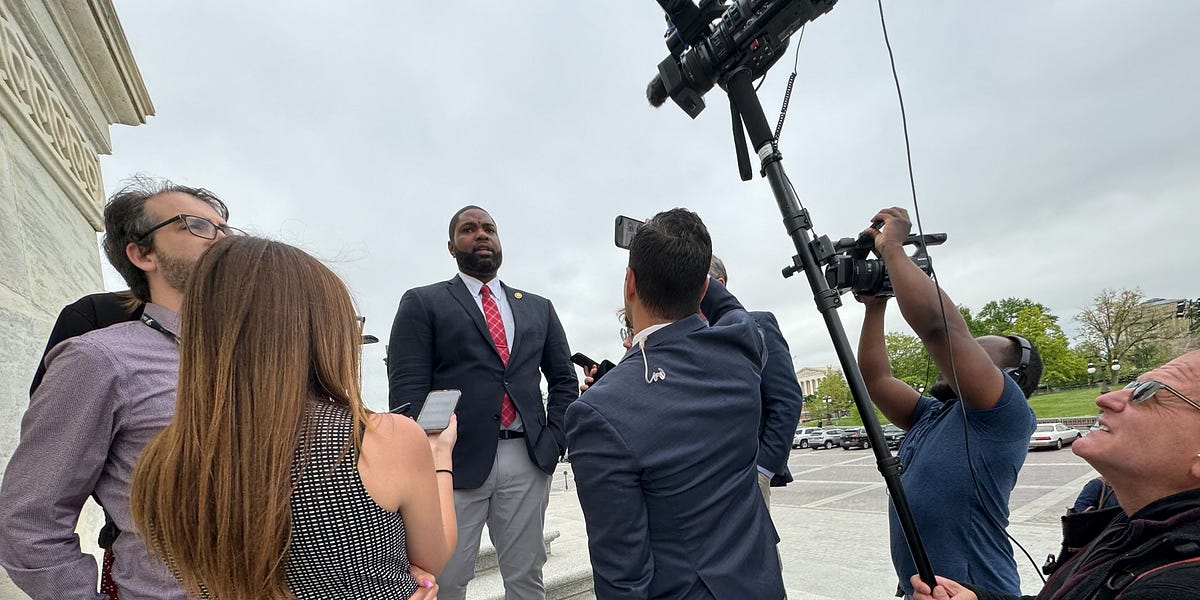- Baked In
- Posts
- 👀 We Are One Step Closer To The Supreme Court
👀 We Are One Step Closer To The Supreme Court
GM Everyone,
It is rumored that the hemp bill in Texas is on the Governors desk so we should see some movement here shortly. Tick. Tock.
A little less than a 9 minute read.
💸 The Tape
In a blow to marijuana reform advocates and state-legal cannabis businesses, a federal appellate court on Tuesday upheld the U.S. government’s authority to prohibit marijuana, rejecting a constitutional challenge brought by several companies operating legally under Massachusetts law.
The First Circuit Court of Appeals affirmed a lower court’s ruling that the federal Controlled Substances Act (CSA) remains valid and enforceable, even in states that have legalized cannabis for adult or medical use. A three-judge panel concluded that there is no “fundamental right” to grow or sell marijuana, regardless of federal non-enforcement policies in legal states.
“The appellants’ reasoning would mean that there would be a fundamental right to grow and sell any product that founding era laws encouraged residents of that time to grow and sell,” wrote Chief Judge David Barron. “We decline to adopt a line of reasoning that would support that conclusion.”
The lawsuit was originally filed by Verano Holdings Corp., Canna Provisions, Wiseacre Farm, and Treevit CEO Gyasi Sellers. Represented by powerhouse legal teams including David Boies, the plaintiffs argued that Congress has essentially abdicated its interest in prohibiting marijuana by defunding federal interference in state medical programs (via the Rohrabacher-Farr Amendment) and tolerating regulated cannabis markets in jurisdictions like Washington, D.C.
Their case hinged on the idea that Congress’s selective enforcement under the CSA had invalidated its constitutional basis for regulating intrastate cannabis commerce. But the court wasn’t convinced.
“The CSA remains fully intact as to the regulation of the commercial activity involving marijuana for non-medical purposes,” the judges wrote, firmly rejecting the notion that patchy enforcement constitutes abandonment of federal control.
This decision reaffirms longstanding Supreme Court precedent, notably Gonzales v. Raich (2005), which upheld federal power to regulate (and ban) marijuana even when grown and consumed entirely within a single state.
Still, the court acknowledged the plaintiffs had standing to sue, citing credible economic harm caused by the CSA’s chilling effect on cannabis financing, insurance, and supply chains. But standing isn’t the same as winning, and the panel ultimately ruled the plaintiffs failed to state a claim under the Due Process Clause.
The plaintiffs have signaled all along that they plan to appeal to the U.S. Supreme Court, setting the stage for a potential high-profile battle over the constitutional future of federal cannabis prohibition.
In the meantime, marijuana remains federally illegal—no matter how many states have voted to legalize it, or how infrequently the feds choose to act.
📈 Dog Walkers.
IM Cannabis Moves Forward
What’s Going On Here: IM Cannabis Corp. (NASDAQ: IMCC, CSE: IMCC) shared a slew of corporate updates, starting with a successful shareholder meeting on May 23, 2025, where all resolutions—including director elections and a new equity incentive plan—were passed. Notably, shareholders greenlit the “Focus Transaction,” a related-party deal involving co-founders Oren Shuster and Rafael Gabay.
The Focus Transaction officially closed on May 26, 2025, settling roughly C$314K in debt via the issuance of 128,818 shares. To conserve cash, the company also closed a C$2.3M secured debenture offering to existing debt holders, with no interest unless in default. Key insiders participated in the raise, which was deemed exempt from minority approval under MI 61-101, though IM Cannabis still opted for full shareholder approval for governance transparency.
Additionally, Shuster exercised 152,701 pre-funded warrants, further cementing his position as a Control Person in the company.
The overarching theme? IM Cannabis is clearing the decks and arming itself with capital—poised for a focused push, particularly in the German medical cannabis market.
Secuession Planning Is Underway At OGI
What’s Going On Here: Organigram Global Inc. (NASDAQ/TSX: OGI) announced that CEO Beena Goldenberg will retire at the end of the company’s fiscal year on September 30, 2025. Until then, she’ll continue steering the ship—and the strategy—as Organigram cements its place as Canada's market share leader.
Since taking the helm in 2021, Goldenberg has taken Organigram from $80M in revenue to over $250M, expanded Moncton’s cultivation facility, led three major acquisitions, and launched international operations in Germany, the UK, and Australia. Her recent Collective Project deal even unlocked the company’s first U.S. revenue.
The board praised her transformational leadership and has launched a search for the next CEO to build on her legacy. Goldenberg will spend her remaining months focused on growth and a smooth handoff, leaving behind a streamlined, international-ready cannabis powerhouse.
🗞️ The News
📺 YouTube
Why Is Federal Cannabis Legalization Taking So Long? | Trade to Black
What we will cover:
✅ Host Shadd Dales explains why federal cannabis legalization in the U.S. is still delayed, despite strong public support and a growing state-level market.
He breaks down the key reasons: partisan gridlock in Congress, resistance from agencies like the DEA and FDA, and pressure from lobbyists and special interest groups. While over 40 states have legalized medical or adult-use cannabis, marijuana remains a Schedule I drug federally, keeping companies locked out of banking, interstate commerce, and fair tax treatment.
Shadd highlights how federal lawmakers are slow to act, even as the cannabis industry generates billions in revenue and creates jobs. He also outlines how upcoming 2026 mid term elections and regulatory reviews could impact the future of rescheduling or decriminalization.
This episode gives a clear look at what’s really blocking legalization and what needs to happen next. For investors, operators, and anyone watching U.S. cannabis reform closely — this is a must-watch.

